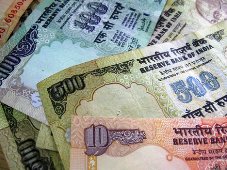 Inflation outlook going forward would be influenced by factors like food price situation, behaviour of global commodity prices and the extent to which demand-side pressures may manifest, the Reserve Bank of India said on Tuesday.
Inflation outlook going forward would be influenced by factors like food price situation, behaviour of global commodity prices and the extent to which demand-side pressures may manifest, the Reserve Bank of India said on Tuesday.Domestic food price inflation has witnessed a high volatility since mid-2009 due to both structural and transitory factors and a significant part of the recent increase is due to structural constraints, the RBI said in its third-quarter monetary policy review for FY 11.
"This is reflected in the less than expected moderation in food price inflation even in a normal monsoon year," the RBI said.
Transitory supply-shocks have resulted in a sharp increase in the prices of some food items, it said.
"What is more worrying is the substantial increase in prices of several food items even though their production has not been affected," the apex bank said, adding, "as a result, the usual moderation in vegetable prices in the winter season has not materialised."
As food prices have spiked in many countries and India being a large importer of certain food items like edible oils, the domestic food price situation could be exacerbated by the increase in global food prices, it said.
"This, therefore, poses an additional risk to domestic food price inflation," it added.
On global commodity prices, the RBI said that some of their prices have risen sharply in the recent period, even as the global recovery was fragile.
"Should these trends continue, they will impact inflation, domestically and globally," the RBI said.
Pointing to demand-side pressures, India's central bank said that this risk arises from the spill-over
The rising input costs relate particularly to industrial raw materials and oil while pressure on wages are to both the formal and informal sectors.
As the rise in food inflation has been persistent for more than two-years now and rather sharp in recent times, "this cannot but have some spill-over effects on generalised inflation, the apex bank observed.
This would be particularly so as the growth momentum is strong and both workers and producers are likely to have pricing power, it said.
In the corporate sector, the share of wages in total costs is increasing and the indexation of the Mahatma Gandhi National Rural Employment Guarantee Act would also raise the wage rate in the agricultural sector, it said.
In addition, besides oil, prices of some primary non-food articles have also risen sharply in the recent period.
"Since these are inputs into manufactured products, the risk to headline inflation is not only from the increase in non-food items but also because the increase in input costs will ultimately impact output prices, the RBI said.
As the output gap closes, corporates will also be able to sustain higher output prices.
"In the absence of commensurate increase in capacity, there is the risk of demand-side pressures accentuating," the RBI said.







 © 2025
© 2025